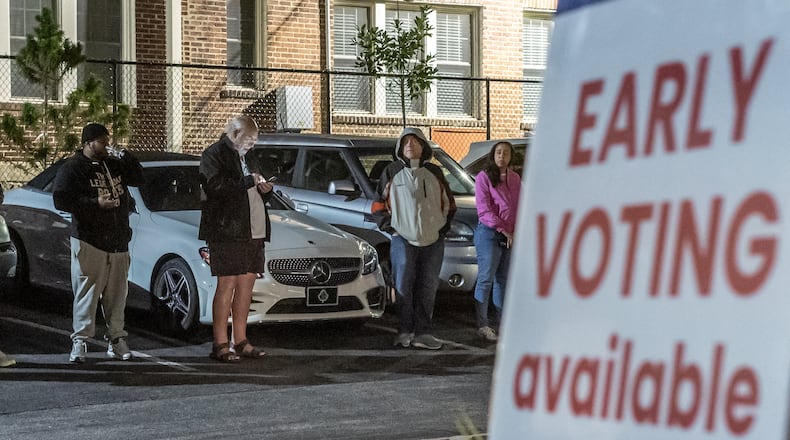An Oconee County judge ruled Thursday to restore the registration status of any county voter challenged within the state-mandated voter challenge quiet period.
The ruling came after Western Judicial Circuit Chief Judge Lisa Lott rejected a lawsuit filed by Suzannah Heimel, a conservative candidate running for a seat on the Oconee County Commission, that attempted to force the county to reconsider more than 200 dismissed voter eligibility challenges.
“The public has a strong interest in the right of its qualified citizens to vote without unnecessary encumbrances,” Lott wrote in her decision.
The decision ended one of several cases across Georgia where conservative activists have asked the courts to force county election boards to remove voters from the rolls who the activists believe are not eligible. Rather than winning these lawsuits, some legal experts say the goal may be to sow doubt in Georgia’s election system.
Metro Atlanta county election boards have rejected more than 45,000 voter challenges since July, when the latest voter challenge law went into effect. The law, passed by the Republican-controlled General Assembly, further empowered conservative activists to challenge voters by the thousands. The law allows challenges to be considered up to 45 days before the election.
Republican activists have challenged voters they believe may have moved, died or aren’t eligible, and they see the challenge system as a check against fraud. Democrats say the data often cited is inaccurate and outdated, and the vast majority of challenges have been dismissed by county election boards.
Early voting began last week with record-breaking turnout, and voter challenges have entered a quiet period where challenges can no longer be considered. But Oconee County upheld challenges within that 45-day window on Oct. 1, violating state law, Lott wrote in her order.
Poy Winichakul, attorney for the left-leaning Southern Poverty Law Center, said the activists’ challenges threaten voters’ trust in this year’s election and jeopardize the votes of eligible voters.
“The issue is that everything should be set,” she said. “Voters are registered to vote; maybe they sought an absentee ballot, maybe they already made a plan to vote. Their eligibility shouldn’t be in question.”
Georgia removes outdated voters on a biennial basis, including last year when it canceled the registrations of more than 189,000 inactive voters. The state also removes voters who have died, committed felonies or notified election officials they have moved or no longer want to be registered.
“This ruling ensures justice for Oconee County voters and is an authoritative statement that voter challenges should not change the status of voters in the immediate run-up to an election,” said Caitlin May, attorney for the American Civil Liberties Union of Georgia. “We look forward to continuing the fight for voters wrongly challenged throughout the state.”
About the Author
Keep Reading
The Latest
Featured




